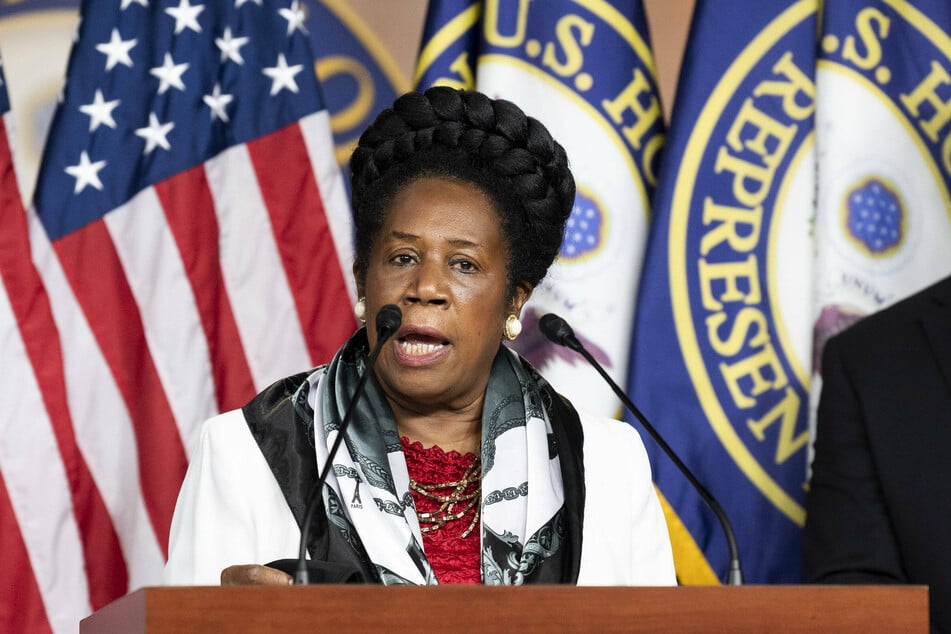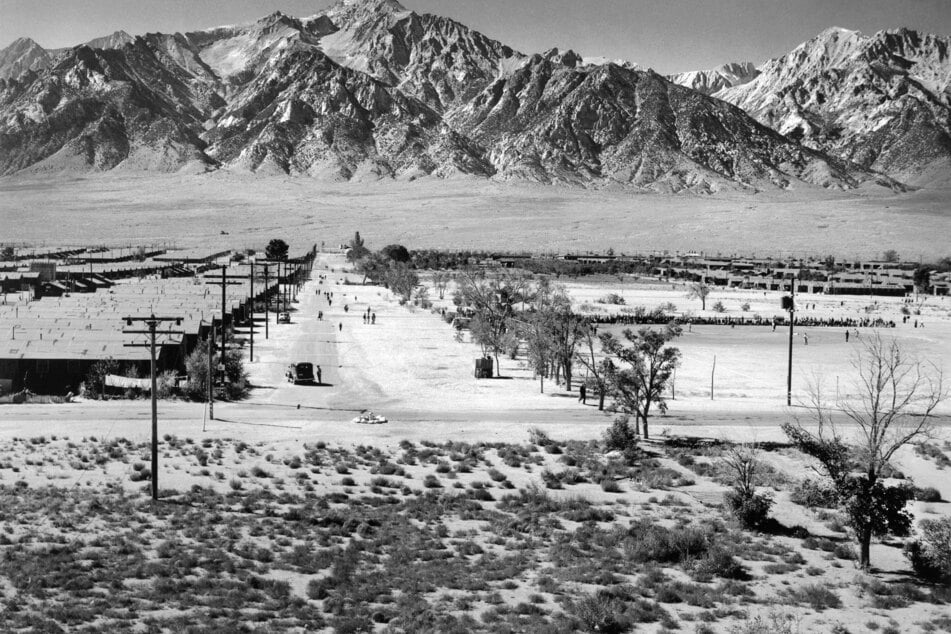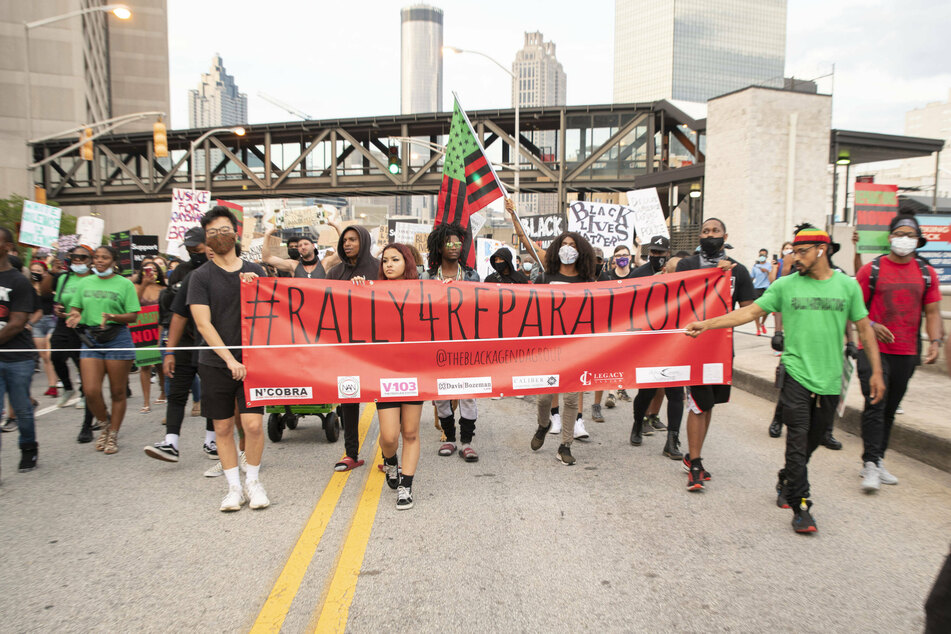Acknowledgement, redress, closure: Why reparations for Black Americans are needed
Washington DC – In a historic move, the House Judiciary Committee voted 25-17 to recommend the creation of a commission on reparations for Black Americans.

HR 40, also known as the Commission to Study and Develop Reparation Proposals for African Americans Act, was originally introduced in 1989, but Wednesday marks the first time lawmakers ever voted on it.
The legislation still needs to go before the full lower chamber, but it is unclear when that might take place. If approved, the bill would still need to be voted out of the Senate and signed by the president before becoming law.
The concept of reparations for Black people in America isn't new. In fact, it has been a demand since Emancipation, although the movement has gained significant traction since the May 2020 murder of George Floyd.
In mainstream US politics, reparations tends to come up around election time as candidates aim to secure the Black vote.
The word got tossed around a lot as 2020 Democratic presidential hopefuls hit the campaign trail. Joe Biden, who ultimately won the election, expressed support for a federal reparations study in his Lift Every Voice plan for Black America. At the same time, he appeared to take Black votes for granted by insinuating in an infamous The Breakfast Club appearance that Black people who don't vote for him "ain't Black."
Will politicians continue using reparations in campaign trail rhetoric while failing to follow through once in office?
Wednesday's House Judiciary vote may be an indication that this time around, the lip service may translate to real action. In light of these positive developments, TAG24 is taking a look at what reparations is and what it isn't.
What does reparations entail?

One of the biggest misconceptions around reparations seems to be that people making claims want to blame individuals alive today for wrongs committed in the past.
In fact, reparations would hold the US government – not individuals – accountable for past and present harms. These historic injustices are reflected in present-day disparities in wealth, education, employment, housing, health, the criminal-legal system, and more – all of which areas are in need of targeted repair.
Another big misconception is that reparations just means disbursing money to individuals. Many scholars and activists point out that while compensation may be a critical component, a comprehensive reparations program would extend far beyond cash payments.
According to two of the top academics in the field, William A. Darity Jr. and A. Kirsten Mullen, reparations programs should involve three main components: acknowledgement, redress, and closure (ARC). They detail each in their book From Here to Equality: Reparations for Black Americans in the 21st Century.
ARC is pretty simple: it involves recognizing responsibility and providing restitution for wrongs committed which continue to wreak havoc today. Ideally, the conditions for restitution would be determined by Black Americans, not the US government – the very institution most responsible for current conditions in the first place. Finally, closure occurs when the people historically wronged deem the measures sufficient.
The United Nations also has its own international legal framework for reparations including measures for restitution, compensation, rehabilitation, and satisfaction, as well as guarantees not to repeat the crimes. Ensuring non-repetition involves transforming the structures of society that continue to hurt Black communities today.
Advocates have further fleshed out the scope for redress in the National African American Reparations Commission's 10-Point Program and the National Coalition of Blacks for Reparations in America's 2021 Harm Report.
Have there ever been reparations programs before?

There are a number of examples of reparations programs throughout history, both in the US and around the world.
In an ironic twist, the District of Columbia created incentives for emancipation in 1862, offering compensation for each enslaved person liberated. The problem was, that money didn't go to the Black victims, but rather to white former enslavers. This policy only deepened the socioeconomic disparities between white and Black people in America.
Later in US history, the Civil Liberties Act of 1988 granted reparations to Japanese Americans placed in concentration camps during WWII. It also provided funds for a public education program to inform US citizens about these injustices.
This year, Evanston, Illinois, launched its own reparations initiative for Black Americans. The funds are raised through a combination of private donations and tax revenue from the city's legalized marijuana economy.
World history includes several more instances, most notably Germany's program in the aftermath of World War II. The first policy came in 1952, when West Germany agreed to send direct payments to Holocaust survivors as well as to the State of Israel.
The German government, together with German industries, has since extended its reparations policy toward Israel and Holocaust survivors and families. It has also offered a substantive apology and invested in educating its citizens about the dangers of history repeating itself.
This continued commitment will likely extend over generations.
Why should the US government consider reparations for Black Americans?

To understand the reasons behind the push for reparations, we have to take a closer look at the uglier side of American history.
The first enslaved Africans were trafficked to what would become the United States of America in the 16th century, and slavery wasn't made illegal (except as a form of criminal punishment) until the 13th Amendment passed in 1865.
Discriminatory laws and policies in the post-Civil War era created enormous obstacles to equal participation.
The Homestead Acts enabled white Americans to gobble up most available land grants, which they used to build their own wealth. Meanwhile, Black people were denied the 40 acres and a mule they were promised during the Civil War.
The Black Codes, the most notorious of which were passed in 1865 and 1866, dictated the conditions under which formerly enslaved people could work and receive compensation. The laws were used to promote forms of de facto slavery, including sharecropping and forced child labor.
Overt segregation as well as political and economic disenfranchisement by various means continued through the first half of the 20th century. Red-lining systematically denied Black Americans access to public and private goods and services, most notoriously with housing – one of the primary means of building generational wealth.
Finally, the Civil Rights Act passed in 1964, but that didn't mean the exploitation ended. Modern-day police brutality and mass incarceration are two of the most prominent examples of contemporary injustices which have their roots in America's history of enslavement.
And even though Black men got the right to vote in 1870 and Black women in 1920, that doesn't mean they could actually exercise it.
For generations, Black Americans have been denied the right to political determination within the US system through various mechanisms including poll taxes, literacy tests, police intimidation, restrictive voter ID laws, gerrymandering, the reduction of polling sites and voting hours, predatory policing, mass incarceration, and felon disenfranchisement. As recently as March 2021, Georgia passed a new voting law officially adopting several of these methods, which have been proven to have a disproportionately negative impact on racial minorities.
Black Americans have largely not had the opportunity to seek transformational solutions to historic wrongs through electoral participation.
What does this history mean for us today?

Discriminatory laws and policies have kept many Black Americans from achieving the same degree of success and security as white Americans.
Darity and Mullen identify wealth, or "the difference between what we own and what we owe," as the best indicator of economic security. Recent data show that for every dollar white American families hold in wealth, Black families have only 10 cents.
In fact, Black American household heads with college degrees have about $10,000 less in median wealth than white household heads who never completed high school!
The authors show these disparities cannot be explained by differences in savings rates, family structures, or work ethics.
Unsurprisingly, these inequities have devastating impacts on housing, health, education, and environmental safety in Black American communities.
When tracing the history of political and economic disenfranchisement, we can draw a direct line from past to present. We can also see that nothing will change unless the government and other institutions make amends for generations of exploitation.
But it's not enough just to reset the scales of economic power. The government also needs to show it's taking concrete steps to ensure nothing like this ever happens again by dismantling structures of racism and investing in education and remembrance.
For these reasons and more, it's impossible to overstate the moral necessity for developing a robust reparations program – with Black Americans at the helm.
Cover photo: IMAGO / ZUMA Wire

